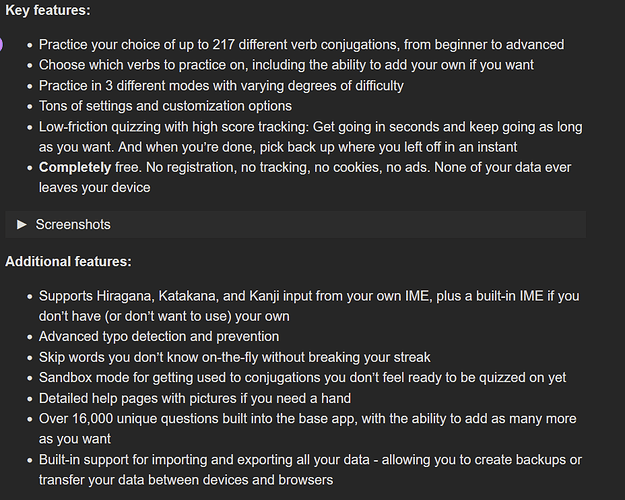Hello Folks.
I can’t help but feel like i am doing something wrong here. I am wondering if any power users can either help me correct my settings or correct my method.
I have the Genki Textbooks that I have started working through. prior to getting them i’ve had a few false starts (one with bunpro on the stock path, with the murderous green owl, Renshuu, etc). so I have a fair amount of words, terms, and grammar points memorized, but nowhere near anything other than the absolute minimum survival basics. if i was suddenly teleported to Japan i’d know how to introduce myself, ask what something is, and order up to 1000 beers (like i said, survival basics).
I am coming back after months and decided to nuke my account and reset it back to 0. i loaded up specifically the Genki textbook path for Grammar and vocab and nothing else.
my difficulty is that at the start the example sentences were pretty simple and I was having fun learning by figuring things out as i go in the review. I would see a word i did not recognize, look it up on Jisho, and use the structure and grammar point I was reviewing to attempt to translate the full sentence as opposed to just looking at the hint and inserting the correct answer.
at this point however these examples are getting way too advanced, and reviews of what should be simple beginner level stuff on the Genki text are taking forever as my eyes glaze over a, sometimes fairly lengthy, example sentence full of words i’ve never encountered before.
More then ever I’m tempted to just hit the hint button for the blue word and supply the answer that i know instead of attempting to use the context clues of the example to figure it out.
should i be selecting “hard” if I don’t know if from the context clues? have i simply advanced myself into a corner?






